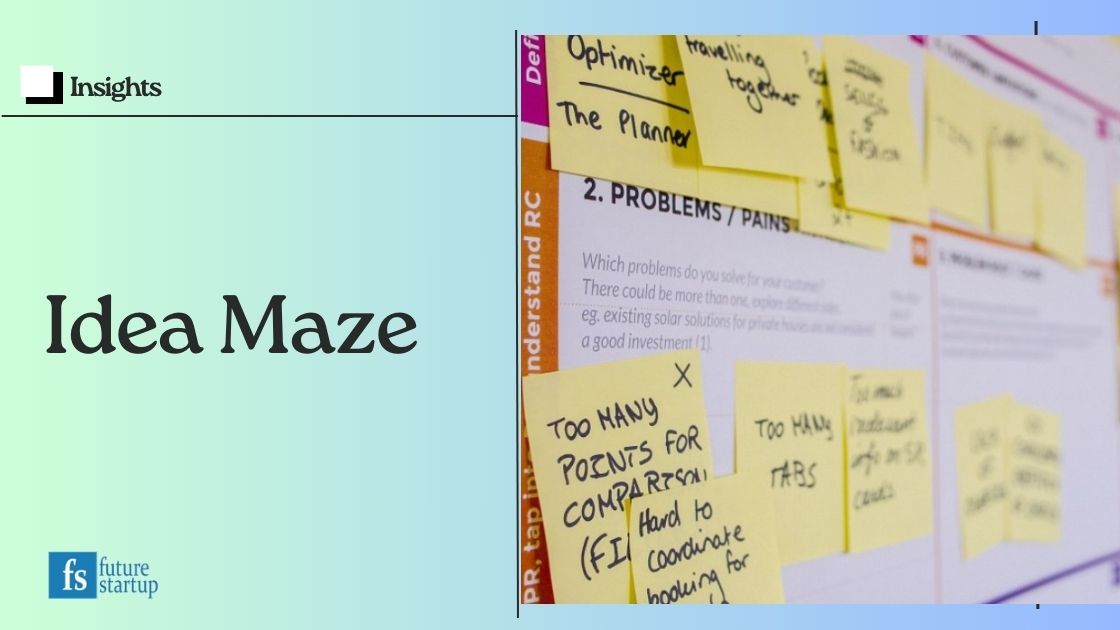
A competition-oriented outlook suggests the world is straight-cut and actions don't need a prior basis of thinking. You come up with an idea and go and make it happen. It suggests everything happens in manifestation. You can copy what someone successful is doing and be equally successful. It leaves out the most important aspect of any creation, which is that creation is a complex process.
Every creation is a circuitous journey. It is rarely a straight line.
You start with an idea of building a gaming company, you end up building a work collaboration tool (Slack).
You start with the idea of building a tech services company and instead, end up building a work management tool for developers (Atlassian).
You start with the idea of an urban farming company but end up building an agri-tech company that helps farmers access input, finance, and market (iFarmer).
I can go on with this list where an endless number of founders wanted to build one thing and ended up building a completely different thing.
This is not limited to company building alone, this is the truth across all discoveries. Explorers in the past discovered many places by accident.
Many great scientific discoveries happened as a by-product of the main experiment. You start to solve one problem but end up solving an even bigger problem.
The reality is mysterious. Manifestation, however, may appear straightforward.
This has a name in the world of startups called Idea Maze. Attributed to former A16z partner Balaji Srinivasan, the core idea of the concept is that each idea has a history and its own details that someone looking from the outside might fail to understand and realize. Best founders usually have a better grasp of their idea maze.
From Balaji:
"A good founder is capable of anticipating which turns lead to treasure and which lead to certain death. A bad founder is just running to the entrance of (say) the "movies/music/filesharing/P2P" maze or the "photosharing" maze without any sense for the history of the industry, the players in the maze, the casualties of the past, and the technologies that are likely to move walls and change assumptions."
This offers an excellent framework to think about competition and why you should neither follow nor worry about competition. It also tells us why while some copycat ideas succeed, most of them fail.
In other words, you should not worry about competition because it is highly unlikely that your competition will follow the same path as you.
They might copy the manifestation of your ideas, but they will never be able to get into your idea maze and see its progression or path to manifestation. So you can safely ignore your competition.
This applies to obsessing over your competition as well. In many instances, we get caught up in the idea of what the competition is doing. Instead of focusing on our own ideas, thesis, and innovation, we preoccupy ourselves with what the competition is doing and invest resources and time in out-competing the competition.
While it is necessary to be aware of the moves and strategies of your competition, it's unwise to occupy yourself with their every move. There are instances when we even go to the extent that we tend to launch initiatives simply because the competition is doing it. It is a distraction and will only lead to disaster.
Again, you have no idea about the idea maze of your competition. You don't know their thesis. When you follow their action without knowing the thesis behind that action, you miss the point.
Instead of worrying about competition, it is a far superior strategy to follow your own idea maze, build your own thesis, and create your own original innovation.
When you pay attention to your own work, it gets better. You create better outcomes. You create better competitive moats.
There are many reasons why people and companies obsess over the competition.
One obvious reason is that the world is memetic. We are memetic. We have a deep desire to follow what other people are doing, what is trendy, and what appears to be shiny and working.
But mimetic behavior leads to commoditization. If you are doing what everybody is doing, you are no different. The best companies are anti-mimetic. They create their own trend. They consciously maintain a distance. And often it helps them stand out and outcompete.
In 2024, instead of worrying about what your competition is doing, think for yourself and be anti-mimetic.
Originally published 18 January 2023. Updated on 21 May 2024.
